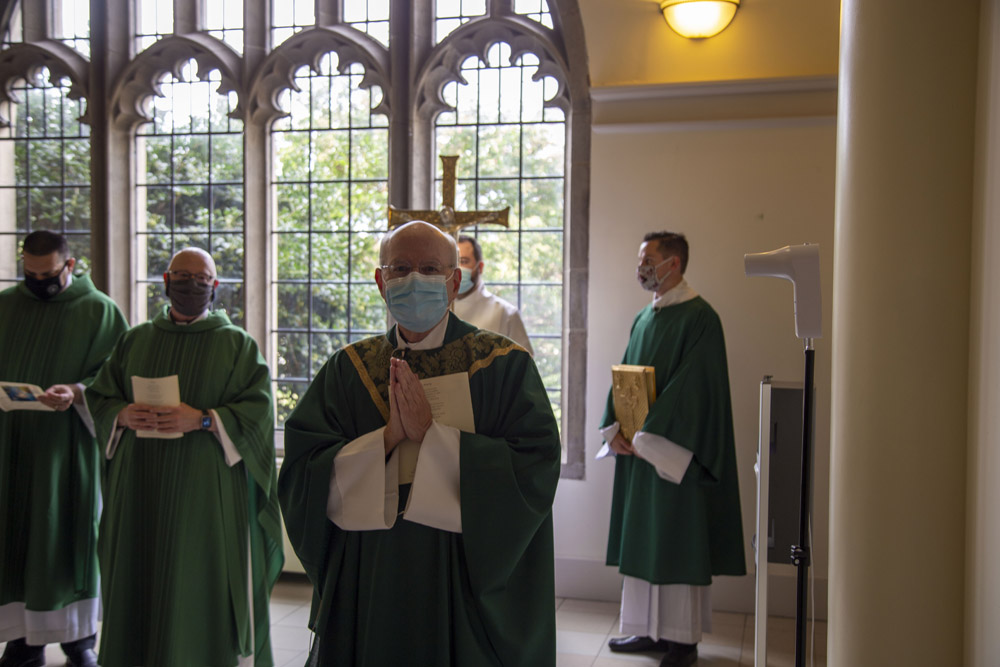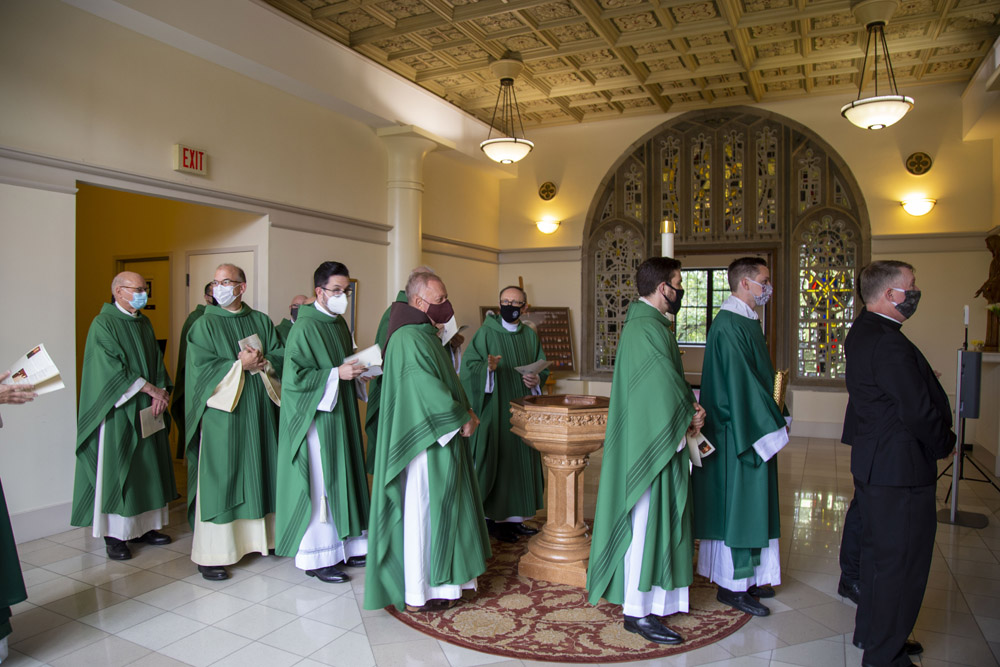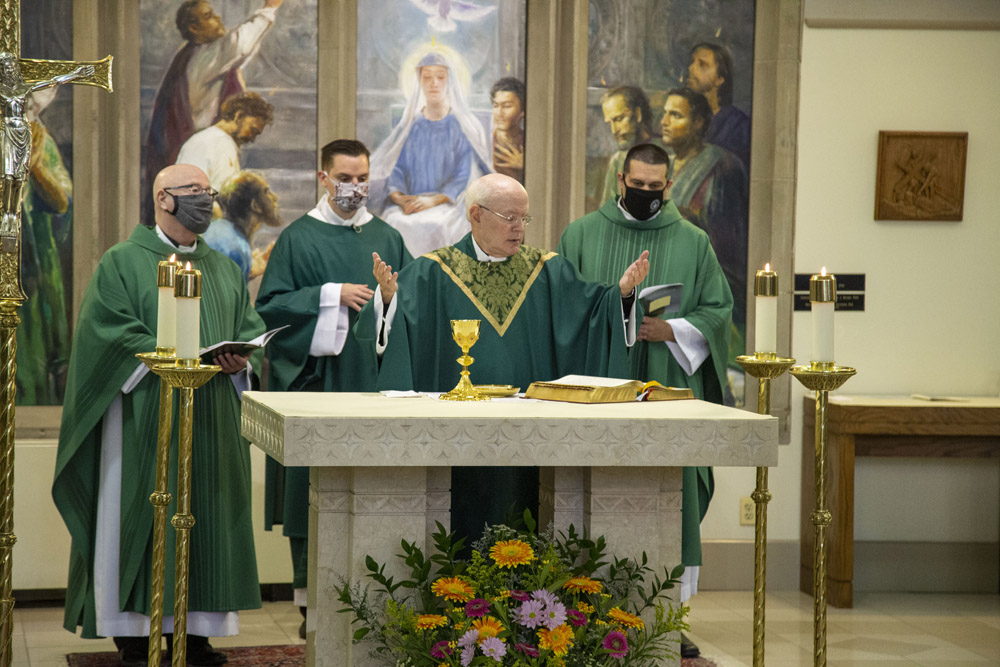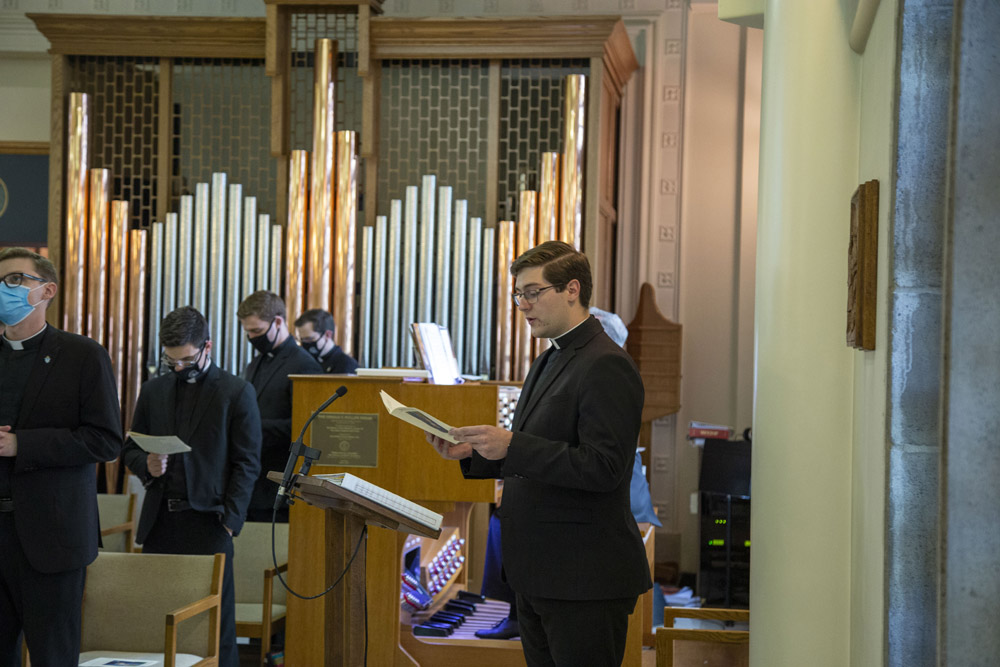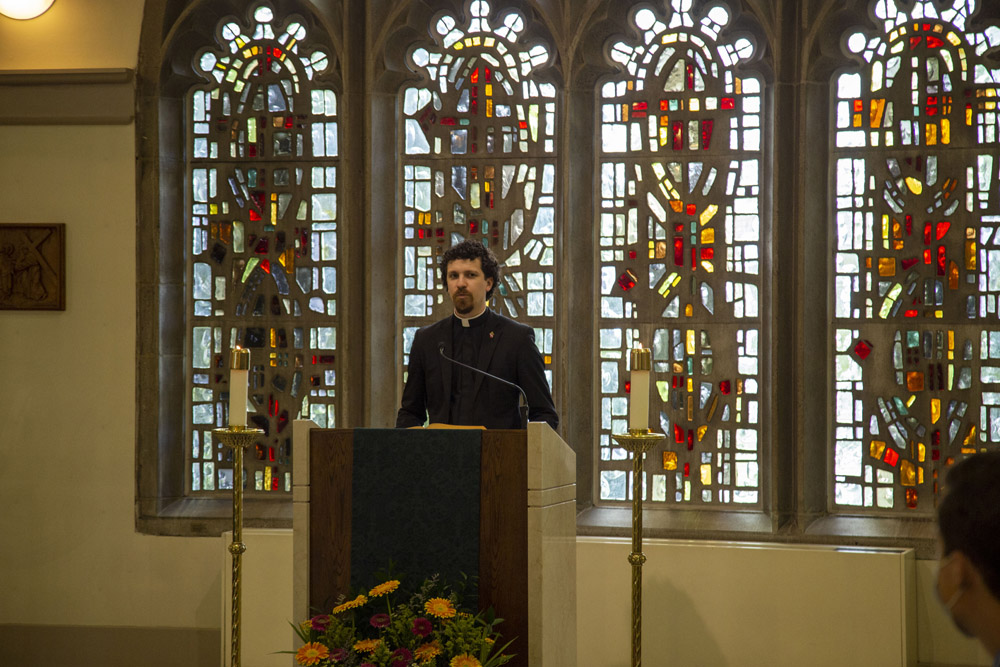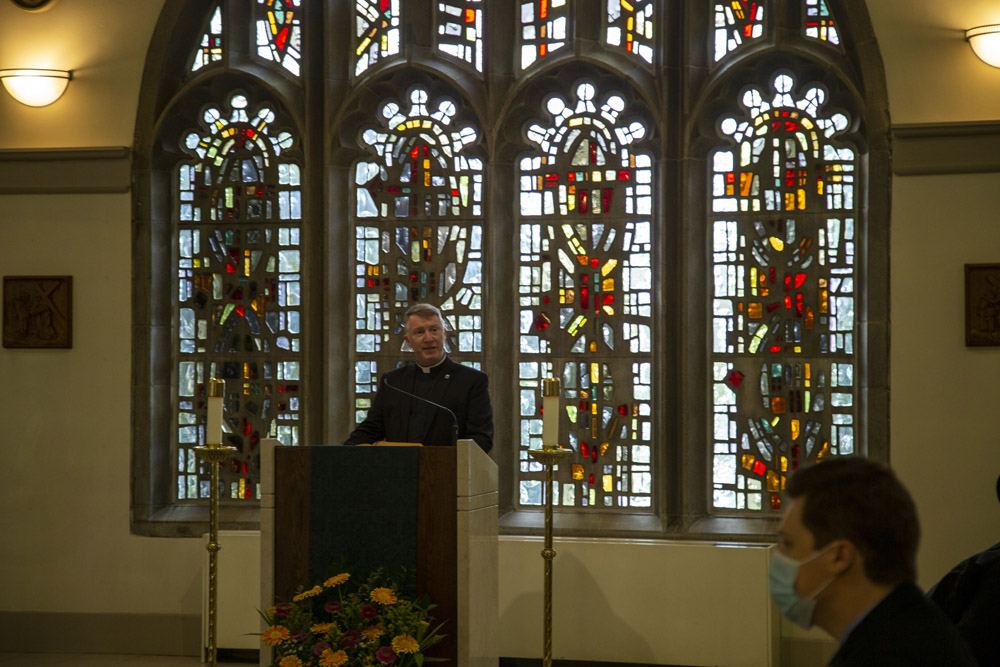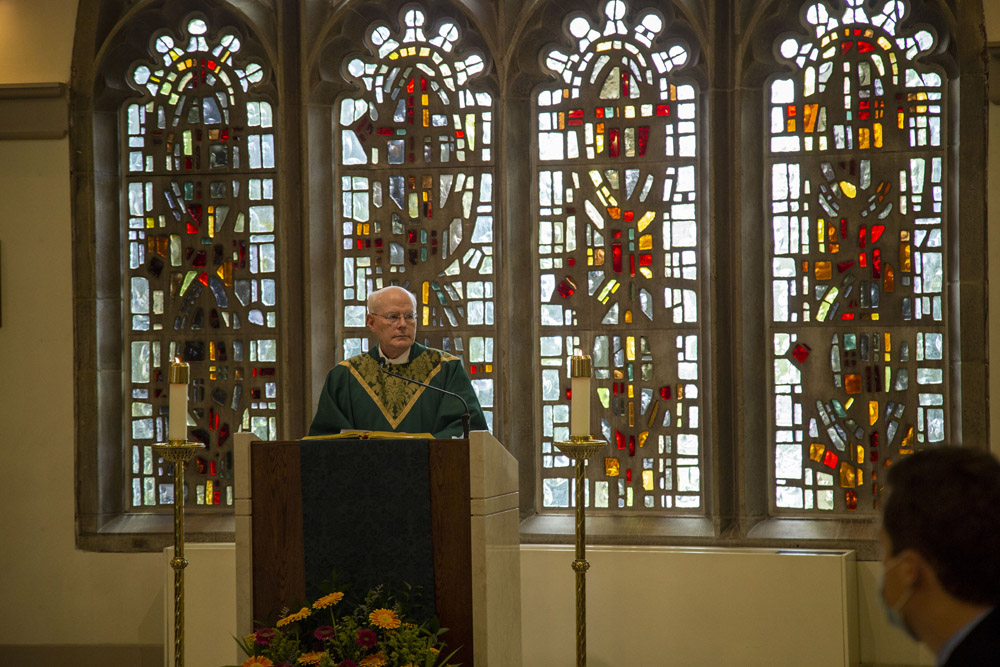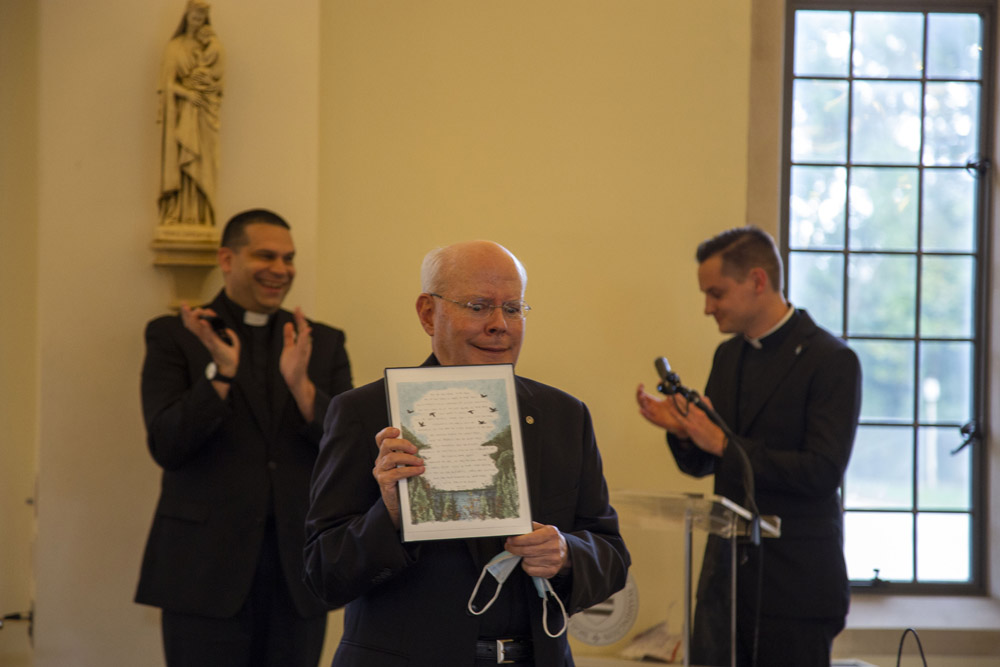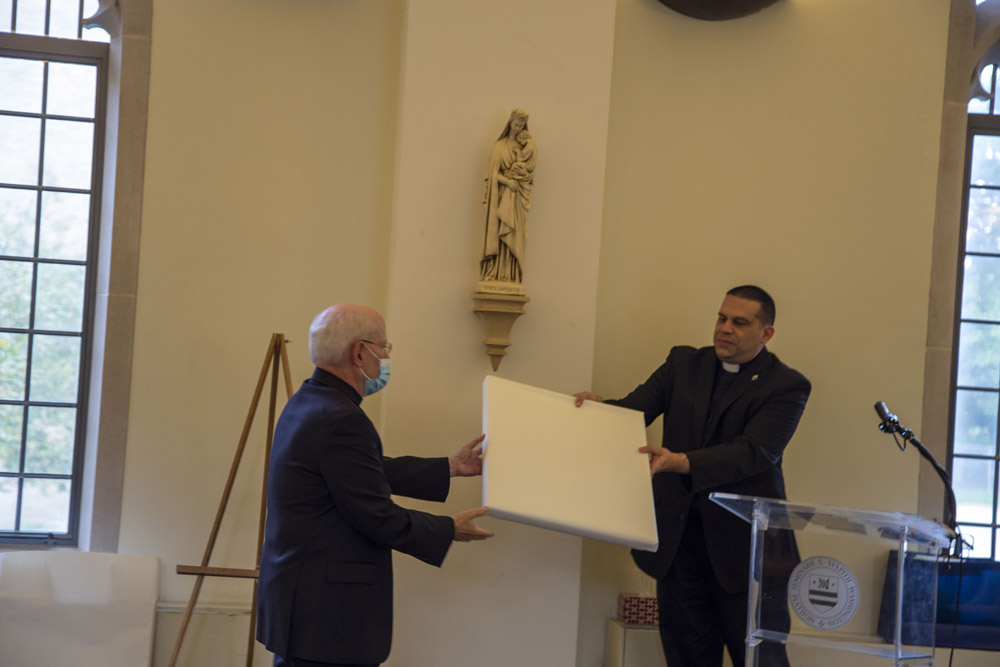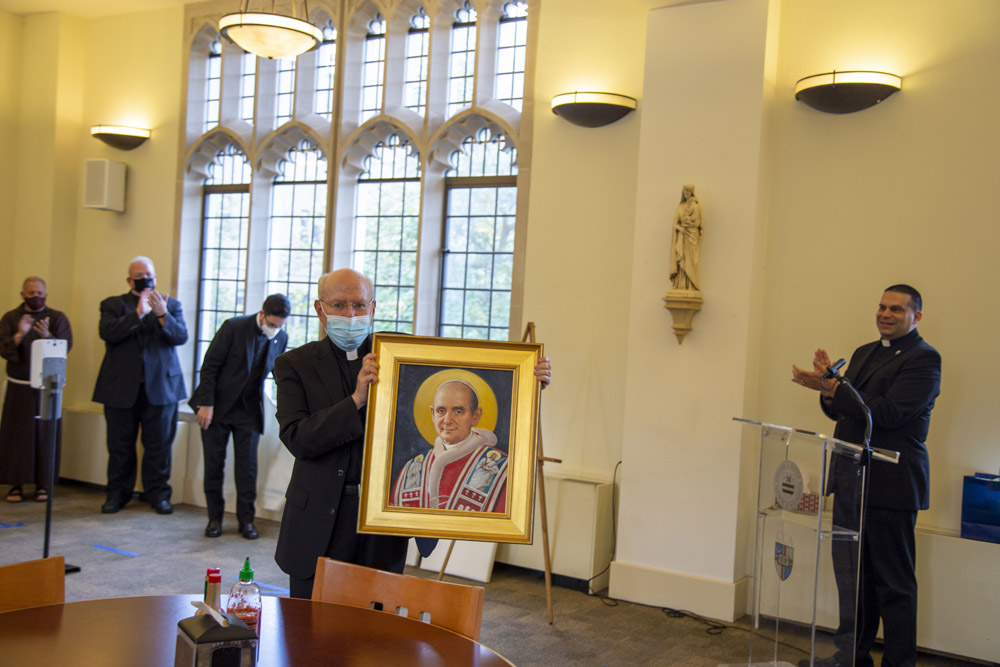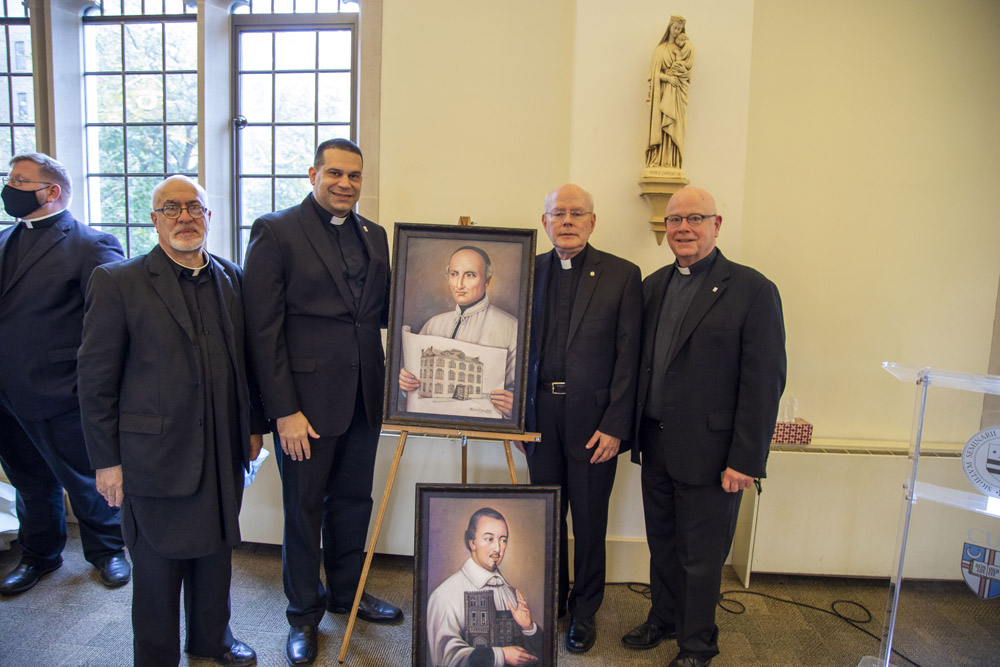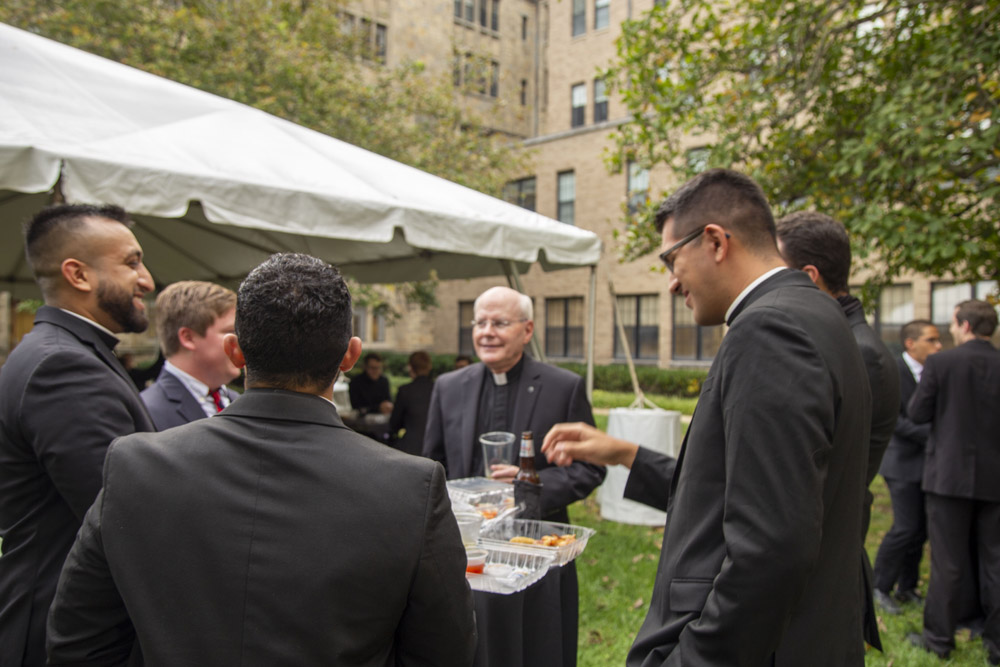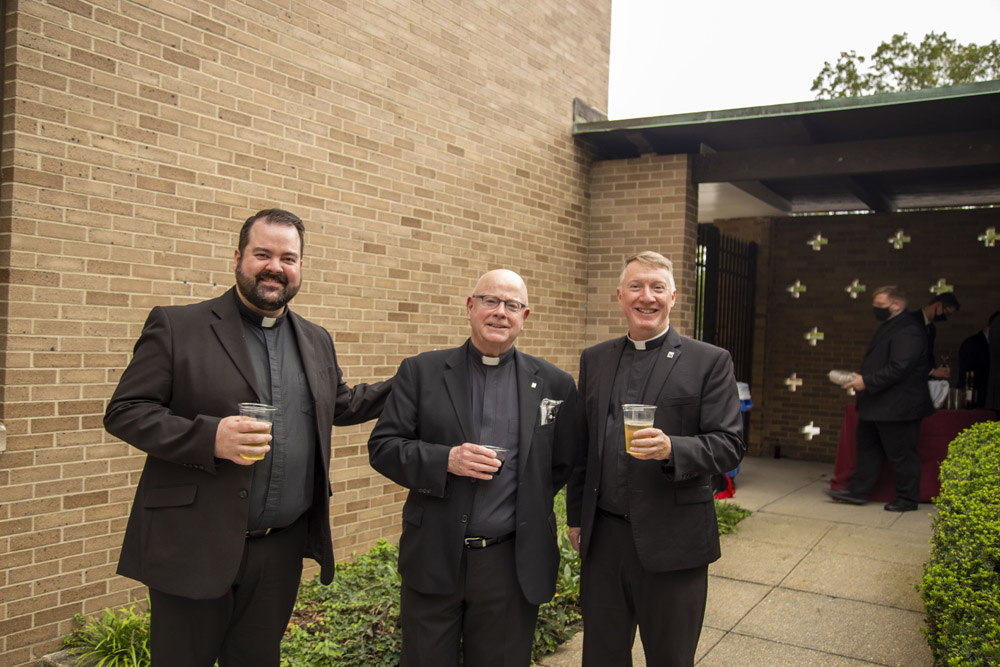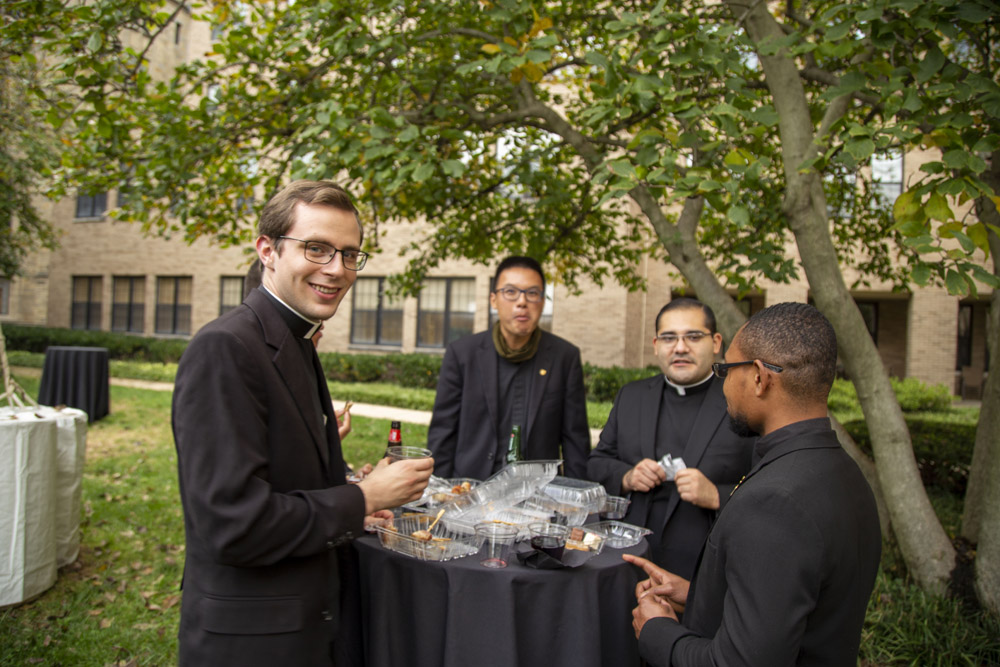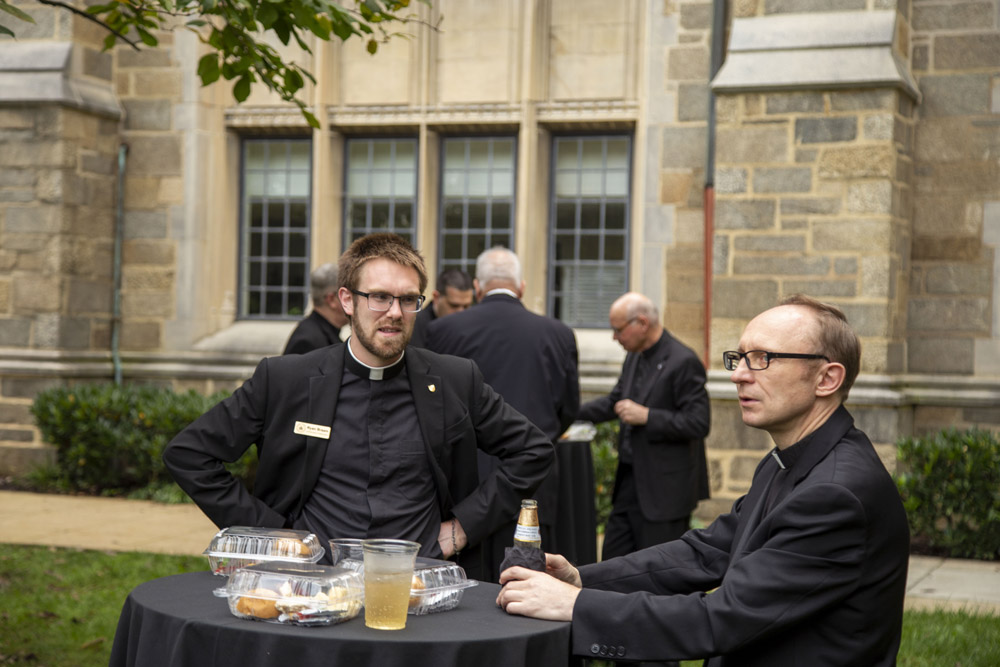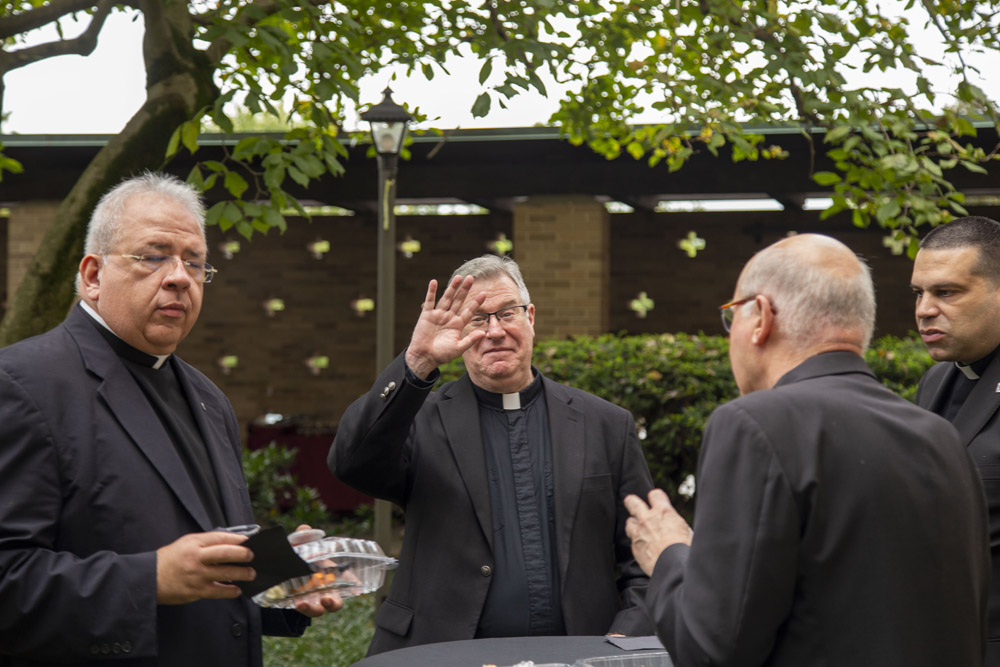
On September 27, the feast day of St. Vincent de Paul, the TC community was joined by a few Sulpician confreres from Baltimore to show their affection and appreciation for Fr. Gerald McBrearity, P.S.S., who retired as TC’s rector in July. The celebration began with a Mass presided by Fr. McBrearity, whose homily focused on being blessed, and being a blessing for others (see below). Following the beautiful Mass, Fr. McBrearity was honored and moved by the heartfelt gift conferral , which included an illustrated framed poem by one of his favorite writers, Mary Oliver, from the SGA and student body. The poem’s title, “You do not have to be good,” catalyzed the good humor of all and highlighted the special gifts of levity and joy which Fr. McBrearity has always brought to the life of the community. Inspired by the new rector, Fr. Dominic Ciriaco, P.S.S., the faculty and staff commissioned, from Fr. Peter Wm. Gray, P.S.S., a portrait of Pope Paul VI for Fr. McBrearity’s new residence, as this pope has been a great inspiration for the former rector. Two other surprising Fr. Gray commissions were also presented: In thanksgiving for Fr. McBrearity and his dedicated years at TC, a portrait of Sulpician founder, Fr. Jean-Jacques Olier, holding a representation of TC. And in loving memory of Fr. Kemper, P.S.S., and his constant support of TC, a portrait of Fr. Nagot, the first Sulpician to cross the ocean (in 1791) to serve the country’s first seminary in Baltimore, St. Mary’s. In the portrait, Fr. Nagot is holding the blueprint of the original Paca Street seminary. These latter works are hanging in the TC refectory in honor of Fr. McBrearity and Fr. Kemper, Sulpician priests whose dynamic ministerial lives were dedicated to seminary formation for the American Church.
The ensuing outdoor reception enabled all to catch up with Fr. McBrearity and wish him well, after a truncated spring semester during which the seminarians were compelled to disperse suddenly, without knowing that their rector would be retiring. All expressed their desire and hope that they will be able to remain connected to their pastoral mentor and friend. (Photo gallery of this event is below the homily text.)
Homily for September 27, 2020
Since July 1st of this year, as I transitioned to retirement, I have found myself having plenty of time to remember and give thanks for my 17 years of ministry here at TC. I remember that on the occasion of my 25th anniversary of ordination, I shared a poem written by William Butler Yeats. I would like to share it with you this evening:
“My fiftieth year had come and gone.
I sat a solitary man
In a crowded London shop,
An open book, an empty cup
On the marble tabletop.
While on the shop and street I gazed,
My body of a sudden blazed
And for twenty minutes more or less
It seemed so great, my happiness—
That I was blessed and could bless.”
There is a time for everything, for twenty minutes more or less, to sense intensely, that we are blessed and can bless: for me, the trust and transparency that TC seminarians have in the past and continue to bring to formation conversations; the unique TC sense of humor; the volunteering; the concern for the poor; the community of friendship despite differences of opinion; for me, the knowledge that those under my care were willing to tell the truth and make difficult choices; for me, the knowledge that generations of seminarians have, in the words of the Letter to the Philippians, internalized the same attitude that is also in Christ Jesus, that is, humility, availability for service, self-sacrifice—so great my happiness that I have been blessed and can bless.
For each of us, there is an appointed time for everything; a time to pause, a time to remember, a time to name the blessings and a time to bless others. I believe that if we do not take the time, if we do not pause, if we forget and therefore cannot name the blessings, then the time will come when we will be unable to be a blessing for others. My prayer for you is that as you enter into this fast paced seminary calendar that you take the time, slow down, look around, attend to your personal and spiritual narratives, that you sense intensely that you are blessed and that your greatest desire is to be a blessing for others.
This is especially true at this moment in our Church’s and our nation’s history. At this moment our country is experiencing an unprecedented health crisis, a heightened awareness of centuries of racial prejudice, a recognition of police brutality especially toward African Americans and the scapegoating of immigrants who in our nation’s history contributed to making our country the great country that it is. In this evening’s Gospel, Jesus tells us the story of a father who asks his sons to work for him– he asks them if they are truly willing to work for him. And in the context of this Eucharist we are asked if we are truly willing to work for him, to respond to God’s call to follow in the footsteps of Jesus, to create by everything we say and do a culture of compassion for the ill and vulnerable, a culture of justice and reconciliation, a culture of hospitality and hope, to truly be a blessing for others.
And how can we truly be a blessing for others? St. Augustine put it this way: “What does love look like?” “Love has hands to help others. It has feet to hasten to the poor and needy. It has eyes to see misery and want. It has ears to hear the sighs and sorrows of others. That’s what love looks like.”
Centuries later, St. Vincent de Paul, whom we remember each September 27th preached the following.
“Extend mercy toward others, so that there can be no one in need whom you meet without helping. Just consider how much we ourselves are in need of mercy. For what hope is there for us if God should withdraw mercy from us?”
A contemporary poet captures the same urgency in a poem entitled “No One Walks Alone”:
“That no one’s heart is empty,
That no one goes unfed,
That no one harms another,
That no one feels he has no brother,
That each and every one of us,
Let the light within us shine,
That no one walks
Through darkness alone.”
At this Eucharist, at this very challenging moment in history, let us renew our commitment to be a blessing for others, to do the work God asks of us, to act justly, to love tenderly, to serve others, and to walk humbly with Him. In this way, we are following in the footsteps of Jesus the Good Shepherd and by living this way, by living His way, we will be able to let the light of Christ within us shine so that no one walks through darkness alone. In this way each of us can truly be a blessing for others.

